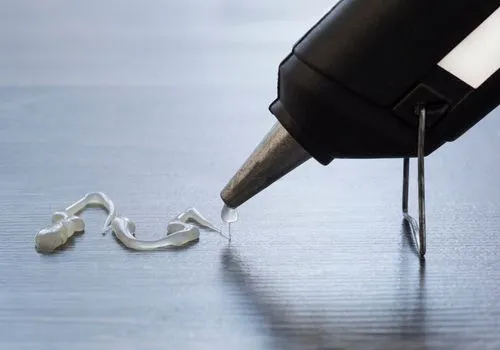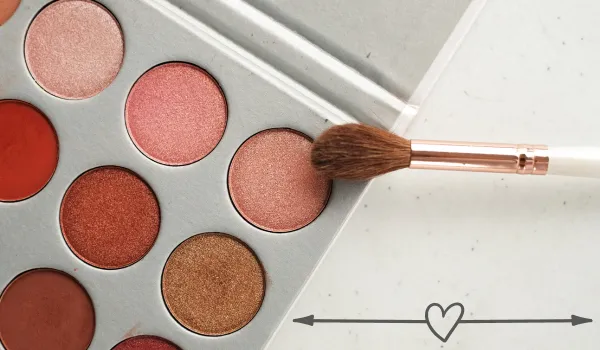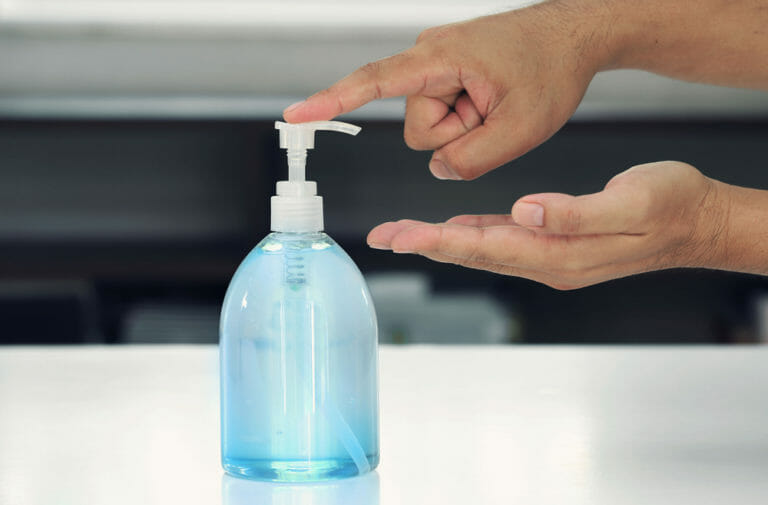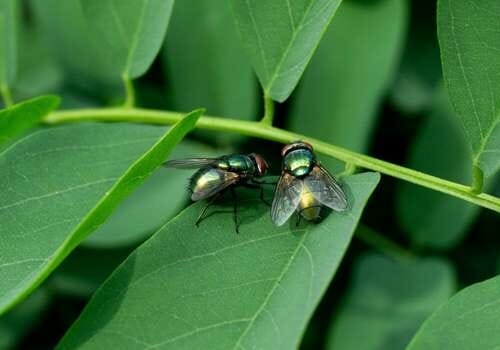The Best Non Toxic Way to Kill Weeds
Weeds are not only unsightly, but they can also rob your garden of vital nutrients and water. Pulling them…
Weeds are not only unsightly, but they can also rob your garden of vital nutrients and water. Pulling them by hand is time-consuming and backbreaking work, and using a chemical herbicide can be harmful to the environment. The good news is that there are non-toxic ways to kill weeds that are both effective and safe for the planet.
The Problem with Traditional Weed Killers
Most weed killers on the market today are chock-full of harmful chemicals that can be detrimental to both humans and the environment. These toxic chemicals can seep into the soil and water, which can then lead to contamination of our food and water supply.
What’s more, these weed killers are often ineffective against invasive weeds, which are a growing problem in many parts of the world. Invasive weeds are difficult to control because they have no natural predators and can quickly spread through an area, crowding out native plants.
The best way to kill unwanted weeds is actually quite simple: pull them up by the roots. This takes a bit more time and effort than spraying them with chemicals, but it’s much better for the environment—and your health.
Get Your Hand on Your Eco-Friendly Living Starter Guide!
The Benefits of non toxic weed killers
There are many benefits to using a non-toxic weed killer in your garden or yard. One benefit is that it is much safer for children and pets who may play in the area. Another benefit is that it will not harm beneficial insects such as bees and butterflies. Non-toxic weed killers can also be used around food crops without fear of contamination.
In addition, non-toxic weed killers are often more effective at killing common weeds than their toxic counterparts. This is because they target the plant’s metabolism rather than just burning the leaves. This means that the weed is less likely to regrow.
Finally, using a non-toxic weed killer is better for the environment. It will not pollute the soil or groundwater just like chemical weed killers can.

Read More: What Are The Benefits Of Energy Efficient Windows?
The Best Chemical-Free Ways to Kill Weeds:
If you want to avoid using harsh chemicals of any kind in your garden, try these natural ways to kill weeds.
#1 Use Mulch
Mulch is an effective, natural way to kill pesky weeds. There are two types of mulch: organic and inorganic. Organic mulch, such as bark or wood chips, smothers weeds by preventing light from reaching the weed seeds. Inorganic mulch, such as black plastic or landscape fabric, blocks weed growth by inhibiting root development.
Mulch is most effective when applied to bare soil before weeds have a chance to germinate. For existing weed problems, apply a thick layer of mulch (3-4 inches) over the entire affected area. The heat generated by the sun will cause the weed seeds to germinate, but without light, they will quickly die.
#2 Solarization (Plastic sheeting)
Solarization is a method that uses the power of the sun to kill weeds.
Solarization works by trapping heat beneath a clear plastic sheet. The heat generated by the sun’s rays will kill weed seeds and roots, preventing them from germinating through a process called the greenhouse effect. This method is most effective when done in the summer months when the sun is at its strongest.
To solarize your garden, start by:
- Mowing down any existing weeds.
- Water the area thoroughly.
- Till the dirt to prevent air pockets.
- Cover the area with clear plastic sheeting. We recommend using a heavy-duty, 6 mils thick material.
- Weight down at the edges of the plastic to prevent it from blowing away.
- Wait anywhere from four to six weeks.
#3 Flame weeder
One of the best ways to kill weeds without using chemicals is to use a flame weeder. This method uses heat to kill the weed, and is safe for nearby plants. To use a flame weeder, simply hold the tip of the tool near the base of the weed. The heat from the flame will cause the weed to die. One thing to keep in mind is that you will have to repeat this process every few weeks to keep the weeds from growing back.
Safety The main safety hazard when using a flame weeder is the heat coming off of the tool. Make sure to use caution and keep your fingers away from the flame. You can also use oven mitts or fireproof gloves to protect your hands.
Most wands come with a canister of propane . Be sure to use the canister within one year of purchasing it. If you do not use your propane regularly, be sure to replace it with a new canister before using it for any weed-killing project.
#4 Use Boiling water
Simply bring a pot of water to a boil and pour it over the weeds you want to get rid of. The hot water will kill the weeds’ roots, preventing them from growing back.
This method is especially effective on young, small weeds. For larger, tougher weeds, you may need to repeat the process a few times.
So next time you’re looking for a non-toxic way to kill weeds, reach for the kettle. A few cups of boiling water is all you need to take care of those unwanted plants for good.

#5 Good Old Fashion Hand Weeding
Hand weeding is one of the best ways to kill weeds without using chemicals. You can hand weed any time of year, but it’s best to do it when the soil is moist. The best way to hand weed is to pull the entire plant, roots and all. This will prevent the plant from regrowing.
There are a few different types of hand weeders that you can use. A hoe is a good tool for large areas with fewer weeds. A hula hoe has a sharp blade that can cut through thick weeds. A weeding fork has prongs that help you loosen the soil around the roots of weeds so you can pull them out easily.
If you have a lot of weeds, hand weeding can be time consuming. But it’s worth it to avoid using harmful chemicals on your lawn or garden.
#6Landscape fabric
Landscape fabric is designed to block out sunlight and prevent weed growth. It’s important to lay the fabric down before you plant anything in your garden, as it can be difficult to put it in place after. Landscape fabric typically lasts for about three years before it needs to be replaced. I have to be honest with you it is an ugly sight for the eyes.
#7 Ground covers
Ground covers are an excellent way to prevent weeds from taking over your garden. By covering the ground with a layer of mulch or another material, you can block out the light that weeds need to grow. There are many different types of ground covers to choose from, so you can find one that best suits your needs.
One of the most popular ground covers is black plastic. This material is very effective at blocking out light and killing weeds. However, it can be difficult to remove once it has been installed. Another option is to use newspapers or cardboard sheets. These materials will also kill weeds, but they are much easier to remove if you need to.
Natural Weed Killers
Another option is to use natural & homemade weed killers such as:
#1 Vinegar
Vinegar is an acidic substance that can be used to kill weeds. The acetic acid in the vinegar will kill the plant tissues by drying them out. the leaves of the weed, causing it to die.
There are two types of household vinegar that can be used as a natural weed killer: white vinegar and apple cider vinegar. White vinegar has a higher acidity level than apple cider vinegar, which makes it more effective at killing weeds.
To use either type of vinegar as a weed killer, simply spray it onto the weed and wait for it to die. You may need to reapply every few days until the weeds are completely gone.
Ideally, you will want to use horticulture vinegar as has 20-30% acetic acid and is often labelled as a weed killer in store. For an ideal mixture, you will want 4 parts of the horticulture vinegar, 1 part water, 1 part dish soap, and a cup of salt per gallon of the total solution.
#2 Vodka
Consider using vodka as a weed killer.
To use vodka as a weed killer, mix one cup of vodka with two cups of water in a spray bottle. Spray the mixture on the leaves of weeds. The alcohol in the vodka will kill the weeds.
Vodka is a safe and effective weed killer when used as directed. However, it’s important to keep children and pets away from treated areas until the vodka has evaporated.
#3 Corn Gluten Meal
Corn gluten meal is one of the best natural weed killers out there. It’s a by-product of corn milling and is made up of about 60% protein. When it’s applied to the soil, it prevents weed seeds from germinating. It’s safe to use around children and pets, and it won’t harm your lawn or garden.
There are two types of corn gluten meal: pre-emergent and post-emergent. Pre-emergent corn gluten meal should be applied before weeds start growing in the spring. Post-emergent corn gluten meal can be applied any time during the growing season.
One thing to keep in mind is that corn gluten meal will kill any plant that it comes into contact with, so be careful not to apply it to areas where you don’t want to get rid of all vegetation.

How to prevent weeds from growing back?
In order to prevent weeds from growing back, it is important to remove them before they go to seed. If you stop weed seeds from sprouting, they never grow, and you won’t have to pull them. Apply a pre-emergent such as corn gluten meal or mulch in early spring and summer.
You can also use any one of the numbers of all natural solutions listed above.
Conclusion
In conclusion, non toxic weed killers are an easy way to prevent weeds from growing without using harmful chemicals. Whether you choose to use vinegar, hand weeding or the flame weeder, you have no excuse for not getting rid of the weeds in your garden this year.
FAQ
Can Salt be Used to Kill Weeds Naturally?
Salt (Sodium Chloride) will kill any plant it comes into contact with, so be careful where you sprinkle it. It’s best to use it on small weeds that are just beginning to sprout. There are two types of salt that will work for this purpose:
Epsom salt and rock salt. Both can be found at your local hardware store.
Epsom salt is the more effective of the two, but rock/table salt is cheaper. Whichever you choose, simply sprinkle it on the weed and water it in well. The weed will wilt and die within a few days.
Be careful when using salt in your garden, as it will kill everything it touches. Be sure to only use salt on weeds that you want to get rid of and not the plants you want to keep. You can also mix salt with vinegar or another substance to make a natural weed killer spray.
Is vinegar as good as Roundup for killing weeds?
Yes, vinegar is every bit as effective in most cases, a LOT less expensive, and less harmful to the environment than Roundup. This is due to the fact that it contains acetic acids. If you opt for horticulture vinegar, it will kill many types of weeds as effectively as Roundup.
Does soapy water kill weeds?
Soapy water does kill weeds, but it is not a long-term solution. The soap will eventually break down, and the annoying weeds will come back.
Keep Reading:
Silicone vs Plastic: Which Is Sustainable For The Environment?






